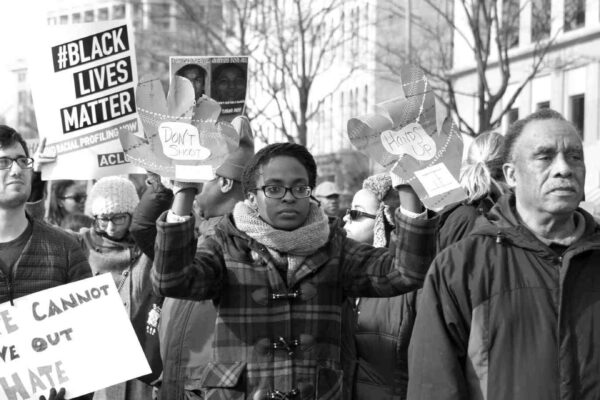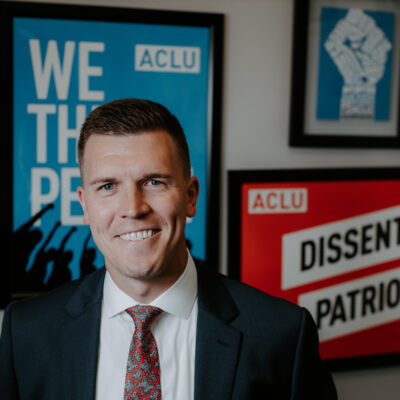While the protests and marches that have swept the nation began because of George Floyd’s tragic murder, they are about much more than just that.
Fundamentally, they reflect two things. First, the fact that the police treat white people differently than they treat black people. And second, that this happens because police officers are not afraid of getting in trouble for treating black people inhumanely.
A personal story helps explain what I mean by inequal treatment.
When I was a senior in college, I drank too much alcohol and tried to walk from downtown Grand Forks to a friend’s house nearby. I didn’t have my bearings and entered the wrong home. The people who lived there thought I was breaking in, so they called the police and came outside to confront me.
Not in my right mind, I began fighting them. When the police arrived, they saw me fighting on the porch of a home that wasn’t mine. And when they intervened, I began fighting with them, too.
Despite all this, the officers didn’t shoot me. They just took me to jail.
This happened 12 years ago. And still not a month goes by that I don’t think to myself — what would have happened that night if I were black instead of white?
To me, that’s the hard truth white people have to face in our society.
Ahmed Aubrey wasn’t committing a crime when he was murdered while jogging in his neighborhood. Breonna Taylor wasn’t committing a crime when she was murdered while sleeping in her bed. George Floyd wasn’t resisting arrest when he was murdered on a city street in broad daylight.
I committed a crime and also resisted arrest, yet I wasn’t murdered.
Until the police treats black people with this same restraint, the ACLU supports these protests.
So what accounts for this different treatment? Simple — racism and lack of accountability.
When I watched the George Floyd video, what struck me the most was how the police officer acted. Normally, when someone is caught doing something wrong, they immediately stop doing it and try to apologize or cover their tracks.
That’s not what happened here.
The officer knew he was being filmed. He knew people were watching him doing something wrong. And not only did he not stop, he showed absolutely no remorse for what he was doing.
The look in the officer’s eyes, knowing the world was watching and simply not caring enough about another person’s life to stop, was bone-chilling.
But until we decide to hold police officers accountable, this behavior won’t change.
And until it does change, the ACLU supports these protests.
Finally, a note about acts of violence and vandalism by certain individuals.
While the ACLU doesn’t condone violence, we don’t want headlines about broken windows to distract us from the true purpose of these protests — the desire for black people to be treated like human beings whose lives matter.
But if we’re forced to speak about the issue of violence during protests, then it’s important to speak in terms of relative harm.
The core difference between the actions of violent protestors and violent police officers is that the damage done by the protestors is temporary, whereas the damage done by the officers is forever.
Put another way, property can be rebuilt; human life cannot.


